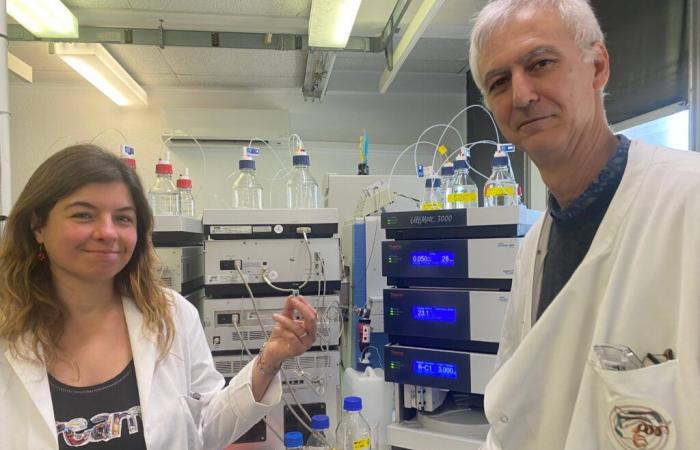
It could ultimately revolutionize the field of prevention but also of diagnosis and prognosis. Its name: metabolomics. Its definition is given by one of the French specialists in this approach, Dr Thierry Pourcher, director of UMR-4320 (CEA mixed research unit) at the University of Côte d’Azur. “It designates the analysis, by high-resolution spectrometry, of small molecules (sugars, amino acids, sugar derivatives, lipids, etc.) present in different biological samples: saliva, hair, tears, blood, or even samples of tumor lesions. This approach makes it possible to obtain a sort of snapshot of cellular functioning and therefore to detect possible disturbances.”
Future clinical applications are major, and are the subject of research which, for some, has already borne fruit. Thierry Pourcher and Sonia Dagnino, exposome specialist (read below) cite examples of studies carried out in collaboration with doctors.
Breast cancer: predicting the risk of recurrence
A study, conducted by Dr Caroline Bailleux, oncologist at CAL, analyzed samples from patients with localized (followed in Nice) or locally advanced breast cancer, using metabolomics. “Metabolic markers of tumor aggressiveness linked to the risk of recurrence have been identified. These results, which will need to be confirmed by larger studies, could help improve patient care.”
Thyroid: discriminate between cancer and benign tumor
Another study, conducted by Dr Grégoire d’Andréa, ENT surgeon at the IUFC in Nice, is interested in thyroid cancer. “His project uses metabolomics and the analysis of certain post-translational modifications (chemical changes made to a protein after its production by the cell, editor’s note) to develop tests that discriminate between a normal thyroid and a tumoral thyroid. The goal is to avoid unnecessary total thyroid ablations, thereby reducing the need for lifelong medication. A patent is in preparation.”
Predicting the severity of Covid-19
It is an infectious pathology that the D Céline Occelli, emergency doctor at Nice University Hospital, was interested. “She has developed a diagnostic and prognostic test for Covid-19 based on the analysis of plasma and urine. This test makes it possible to predict the severity of the infection by identifying early biomarkers associated with an unfavorable outcome.”
Other research explores the link between severity of Covid and exposure to certain environmental pollutants, based on epidemiological data showing serious cases in heavily polluted areas, such as northern Italy.
-Warning signals before the onset of the disease
Beyond the diagnostic and prognostic aspects, metabolomics holds serious hope in the field of prevention, by making it possible to identify warning signals well in advance of pathologies. “Infectious diseases, cancers and even certain cardiovascular disorders leave traces in biological fluids long before the appearance of clinical symptoms, develops Sonia Dagnino. For example, in the EPIC cohort (500,000 people followed over several years), metabolic biomarkers were identified up to 10 years before the diagnosis of cancers such as lung or breast. Certain molecules are overexpressed or underexpressed, indicating an increased risk of developing the disease, even in asymptomatic individuals.”
Very promising tool for the prevention, early detection and monitoring of numerous pathologies, “metabolomics will nevertheless have to await additional validations, on large international cohorts, before widespread clinical application”temper the scientists.
But it is a safe bet that it will then revolutionize the preventive and therapeutic approach to many pathologies.
1. The European Prospective Study of Cancer and Nutrition (EPIC) is a European-wide prospective cohort study investigating the relationships between diet and cancer, as well as other chronic diseases, such as cardiovascular. With more than half a million participants, it is the largest study of diet and disease ever undertaken.





